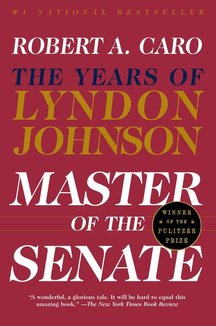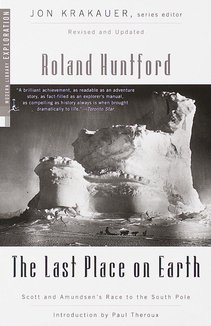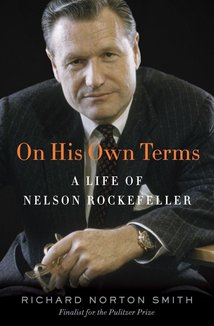Recommended Books

Master Of The Senate: The Years of Lyndon Johnson
Author:
Robert A. Caro
ISBN 13:
978-0394720951
Master of the Senate, Book Three of The Years of Lyndon Johnson, carries Johnson’s story through one of its most remarkable periods: his twelve years, from 1949 to 1960, in the United States Senate. At the heart of the book is its unprecedented revelation of how legislative power works in America, how the Senate works, and how Johnson, in his ascent to the presidency, mastered the Senate as no political leader before him had ever done. It was during these years that all Johnson’s experience—from his Texas Hill Country boyhood to his passionate representation in Congress of his hardscrabble constituents to his tireless construction of a political machine—came to fruition. Caro introduces the story with a dramatic account of the Senate itself: how Daniel Webster, Henry Clay, and John C. Calhoun had made it the center of governmental energy, the forum in which the great issues of the country were thrashed out. And how, by the time Johnson arrived, it had dwindled into a body that merely responded to executive initiatives, all but impervious to the forces of change. Caro anatomizes the genius for political strategy and tactics by which, in an institution that had made the seniority system all-powerful for a century and more, Johnson became Majority Leader after only a single term-the youngest and greatest Senate Leader in our history; how he manipulated the Senate’s hallowed rules and customs and the weaknesses and strengths of his colleagues to change the “unchangeable” Senate from a loose confederation of sovereign senators to a whirring legislative machine under his own iron-fisted control. Caro demonstrates how Johnson’s political genius enabled him to reconcile the unreconcilable: to retain the support of the southerners who controlled the Senate while earning the trust—or at least the cooperation—of the liberals, led by Paul Douglas and Hubert Humphrey, without whom he could not achieve his goal of winning the presidency. He shows the dark side of Johnson’s ambition: how he proved his loyalty to the great oil barons who had financed his rise to power by ruthlessly destroying the career of the New Dealer who was in charge of regulating them, Federal Power Commission Chairman Leland Olds. And we watch him achieve the impossible: convincing southerners that although he was firmly in their camp as the anointed successor to their leader, Richard Russell, it was essential that they allow him to make some progress toward civil rights. In a breathtaking tour de force, Caro details Johnson’s amazing triumph in maneuvering to passage the first civil rights legislation since 1875. Master of the Senate, told with an abundance of rich detail that could only have come from Caro’s peerless research, is both a galvanizing portrait of the man himself—the titan of Capital Hill, volcanic, mesmerizing—and a definitive and revelatory study of the workings and personal and legislative power.

The Last Place on Earth: Scott and Amundsen's Race to the South Pole, Revised and Updated (Modern Library Exploration)
Authors:
Paul Theroux
,
Roland Huntford
ISBN 13:
978-0375754746
At the beginning of the twentieth century, the South Pole was the most coveted prize in the fiercely nationalistic modern age of exploration. In the brilliant dual biography, the award-winning writer Roland Huntford re-examines every detail of the great race to the South Pole between Britain's Robert Scott and Norway's Roald Amundsen. Scott, who dies along with four of his men only eleven miles from his next cache of supplies, became Britain's beloved failure, while Amundsen, who not only beat Scott to the Pole but returned alive, was largely forgotten. This account of their race is a gripping, highly readable history that captures the driving ambitions of the era and the complex, often deeply flawed men who were charged with carrying them out. THE LAST PLACE ON EARTH is the first of Huntford's masterly trilogy of polar biographies. It is also the only work on the subject in the English language based on the original Norwegian sources, to which Huntford returned to revise and update this edition.

On His Own Terms: A Life of Nelson Rockefeller
Author:
Richard Norton Smith
ISBN 13:
978-0375505805
NAMED ONE OF THE BEST BOOKS OF THE YEAR BY THE BOSTON GLOBE, BOOKLIST, AND KIRKUS REVIEWS • From acclaimed historian Richard Norton Smith comes the definitive life of an American icon: Nelson Rockefeller—one of the most complex and compelling figures of the twentieth century. Fourteen years in the making, this magisterial biography of the original Rockefeller Republican draws on thousands of newly available documents and over two hundred interviews, including Rockefeller’s own unpublished reminiscences. Grandson of oil magnate John D. Rockefeller, Nelson coveted the White House from childhood. “When you think of what I had,” he once remarked, “what else was there to aspire to?” Before he was thirty he had helped his father develop Rockefeller Center and his mother establish the Museum of Modern Art. At thirty-two he was Franklin Roosevelt’s wartime coordinator for Latin America. As New York’s four-term governor he set national standards in education, the environment, and urban policy. The charismatic face of liberal Republicanism, Rockefeller championed civil rights and health insurance for all. Three times he sought the presidency—arguably in the wrong party. At the Republican National Convention in San Francisco in 1964, locked in an epic battle with Barry Goldwater, Rockefeller denounced extremist elements in the GOP, a moment that changed the party forever. But he could not wrest the nomination from the Arizona conservative, or from Richard Nixon four years later. In the end, he had to settle for two dispiriting years as vice president under Gerald Ford. In On His Own Terms, Richard Norton Smith re-creates Rockefeller’s improbable rise to the governor’s mansion, his politically disastrous divorce and remarriage, and his often surprising relationships with presidents and political leaders from FDR to Henry Kissinger. A frustrated architect turned master builder, an avid collector of art and an unabashed ladies’ man, “Rocky” promoted fallout shelters and affordable housing with equal enthusiasm. From the deadly 1971 prison uprising at Attica and unceasing battles with New York City mayor John Lindsay to his son’s unsolved disappearance (and the grisly theories it spawned), the punitive drug laws that bear his name, and the much-gossiped-about circumstances of his death, Nelson Rockefeller’s was a life of astonishing color, range, and relevance. On His Own Terms, a masterpiece of the biographer’s art, vividly captures the soaring optimism, polarizing politics, and inner turmoil of this American Original. Praise for On His Own Terms “[An] enthralling biography . . . Richard Norton Smith has written what will probably stand as a definitive Life. . . . On His Own Terms succeeds as an absorbing, deeply informative portrait of an important, complicated, semi-heroic figure who, in his approach to the limits of government and to government’s relation to the governed, belonged in every sense to another century.” — The New Yorker “[A] splendid biography . . . a clear-eyed, exhaustively researched account of a significant and fascinating American life.” — The Wall Street Journal “A compelling read . . . What makes the book fascinating for a contemporary professional is not so much any one thing that Rockefeller achieved, but the portrait of the world he inhabited not so very long ago.” — The New York Times “[ On His Own Terms ] has perception and scholarly authority and is immensely readable.” — The Economist